Covid restrictions 'were a kind of comfort blanket'
- Published
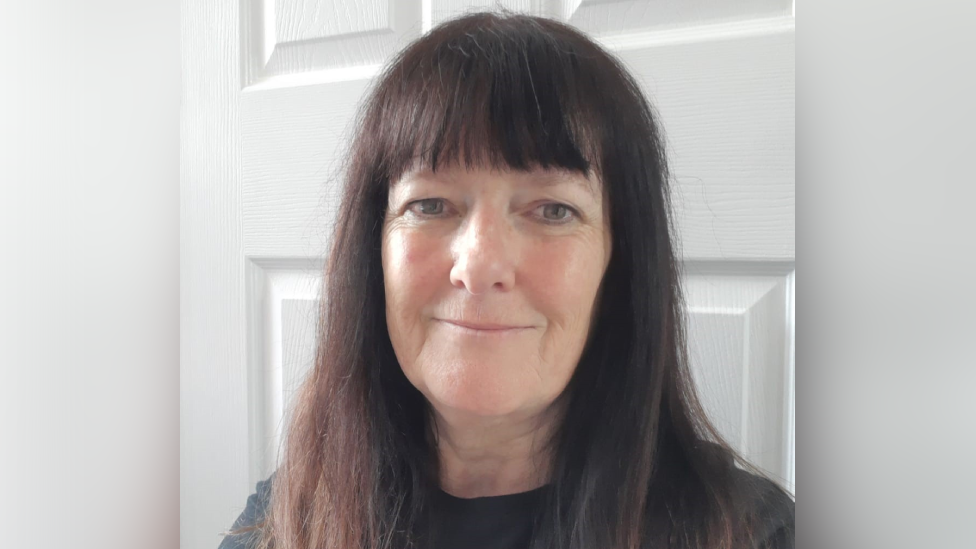
Linda Roberts looks after five other people in total
"I actually think now is the worst time for my mental health."
Linda Roberts cares for her two sons and brother and the isolation of being separated from her wider family during lockdown led her to develop anxiety and poor mental health for the first time.
But she thinks as society unlocks, there is an expectation she should feel better, which is not the case for her.
A Mind Cymru charity survey has suggested rising rates of mental health problems developing during lockdown.
For people who were already experiencing mental health issues, nearly two-thirds reported a worsening of their symptoms.
Meanwhile, just over a quarter of people said they had developed mental health problems during the pandemic.
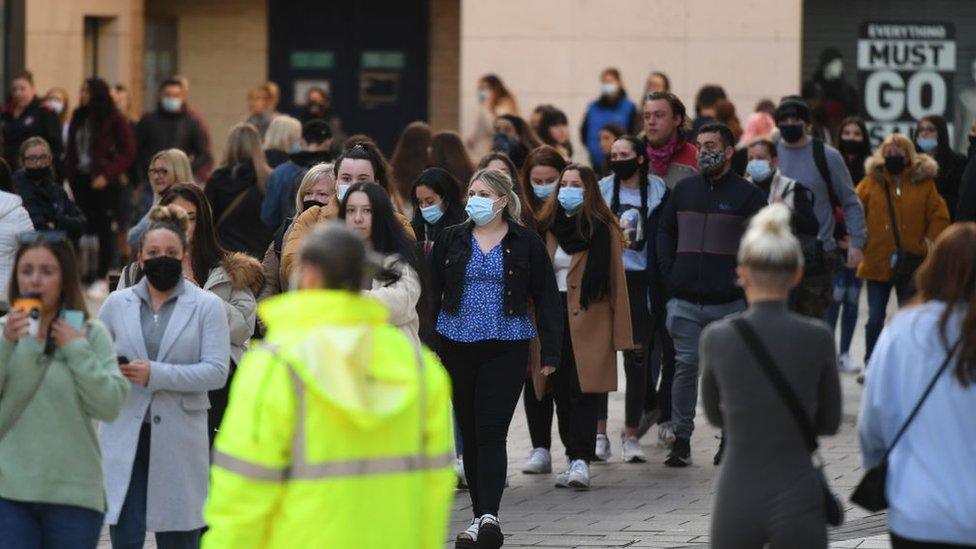
Busy scenes like these have heightened Linda's anxiety
For Linda, 64, from Bridgend, the issues are ongoing.
"I've had a very hard time during the pandemic as I was caring for my sons, and my brother who's suffered a stroke, but I actually think now is the worst time for my mental health," she said.
"I really missed other members of my family when we couldn't see anyone, but because everyone was experiencing some level of hardship it was more accepted if you were struggling with your mental health.
"Anxiety was high at the start of Covid because of all the new rules and worrying about following them and the fear of passing the virus to those I was caring for.
"Then it lifted a bit as we settled into new routines and the rules became a kind of comfort blanket.
"The lifting of restrictions is taking away that blanket little by little and, as it does, anxiety creeps back in and I, and those that I care for, feel under pressure to get back out into a world we're now afraid to be in but are constantly told should want to be in.
"I see people queuing for the pub and shops and we are meant to be happy about the easing of restrictions. But I'm not. I look at these people queueing and think 'why are you doing this, especially with the Delta variant on the increase?'"
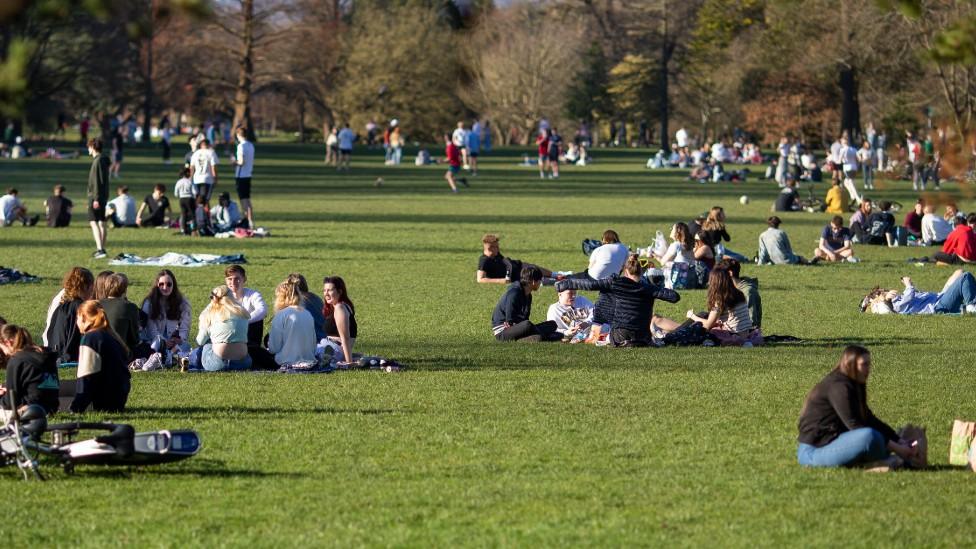
Linda has stopped going to parks as they have got busier
As well as caring for family members, Linda is also a carer for two elderly people close to her home.
"I am an unpaid carer and there has not been any thought given to us.
"We haven't had PPE or face masks, I have had to source protective items for myself to feel safe. I go to the shop to get food for people I care for and that's the only place I go.
"I haven't been to clothes shops, restaurants, or a pub. I've even stopped going to the park, because of the good weather, it's too crowded there now.
"I've had two injections, I should feel safe to go out, but I just don't. I hear some supermarkets are getting rid of one-way systems. But it's concerning, and I want social distancing to stay.
"I see all this news about easing of restrictions and it just worries me. So, I'm still not going out."
Worries over contact
Mind Cymru's Coronavirus: One Year On survey had responses from 650 adults in Wales as part of a UK-wide survey of 11,000 people.
It found 63% of those with existing conditions believed their mental health problems had worsened during the pandemic, while 26% with no previous issues had developed a problem during the same period.
Not being able to see friends, family or a partner and being worried about the virus were the main reasons.
A total of 60% of respondents were worried about seeing or being near people once restrictions eased.
Mind Cymru has called on the new deputy minister for mental health and wellbeing, Lynne Neagle, to ensure commitments to prioritising support to help with the long-term recovery from the pandemic are delivered.
The charity has also asked people across Wales to share their mental health story to emphasise the need to get the right laws and services.
'People will need support'
Susan O'Leary, interim director, said: "These initial results highlight the need for long-term investment and support for Welsh people in the coming years as we know that mental health issues do not have a short-term fix.
"Whilst the easing of restrictions will come as a relief for many of us, this survey indicates that for a significant number of people with mental health problems there may be added worry.
"People will need support to overcome this and return to many aspects of their lives before the pandemic."
The Welsh government said it was investing an additional £42m in this financial year to improve services and additional support for low-level issues.
"Our new programme for government makes it clear that we will prioritise investment in mental health services - and of course having a dedicated deputy minister for mental health and wellbeing reaffirms our commitment to supporting the nation's mental health," a spokesman said.
"Mental health support has been essential during the pandemic and we work closely with partners, including the third sector, to respond to changing mental health needs."
- Published14 June 2021
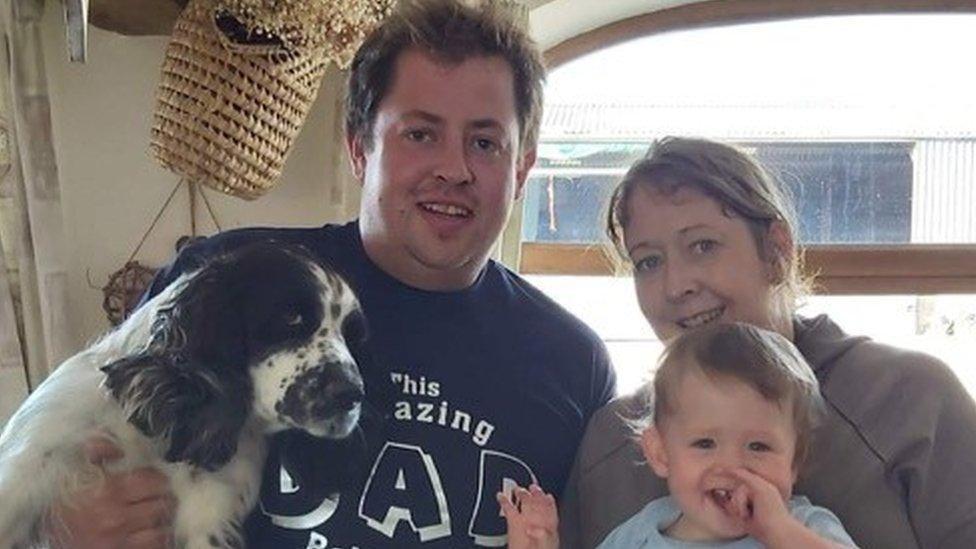
- Published1 March 2021
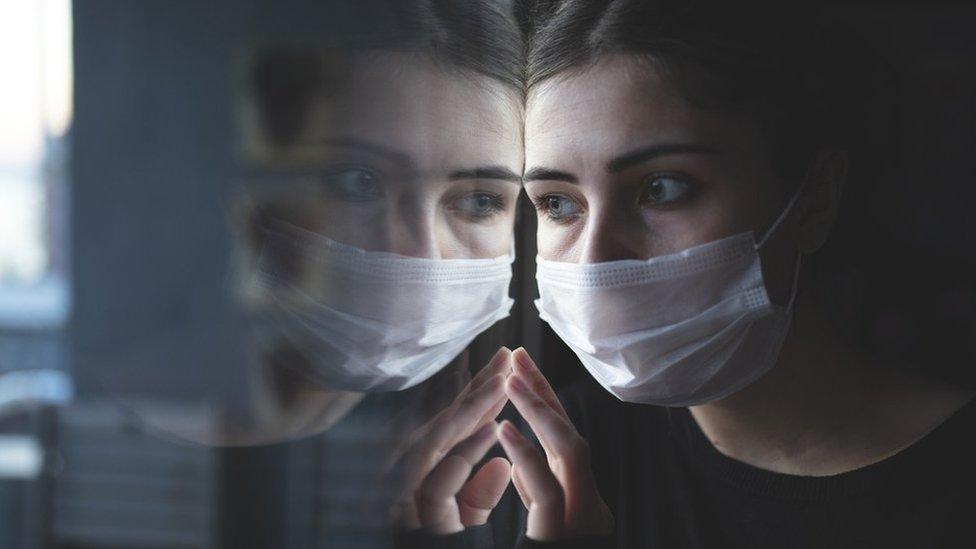
- Published3 May 2021

- Published9 November 2020

- Published1 February 2021
